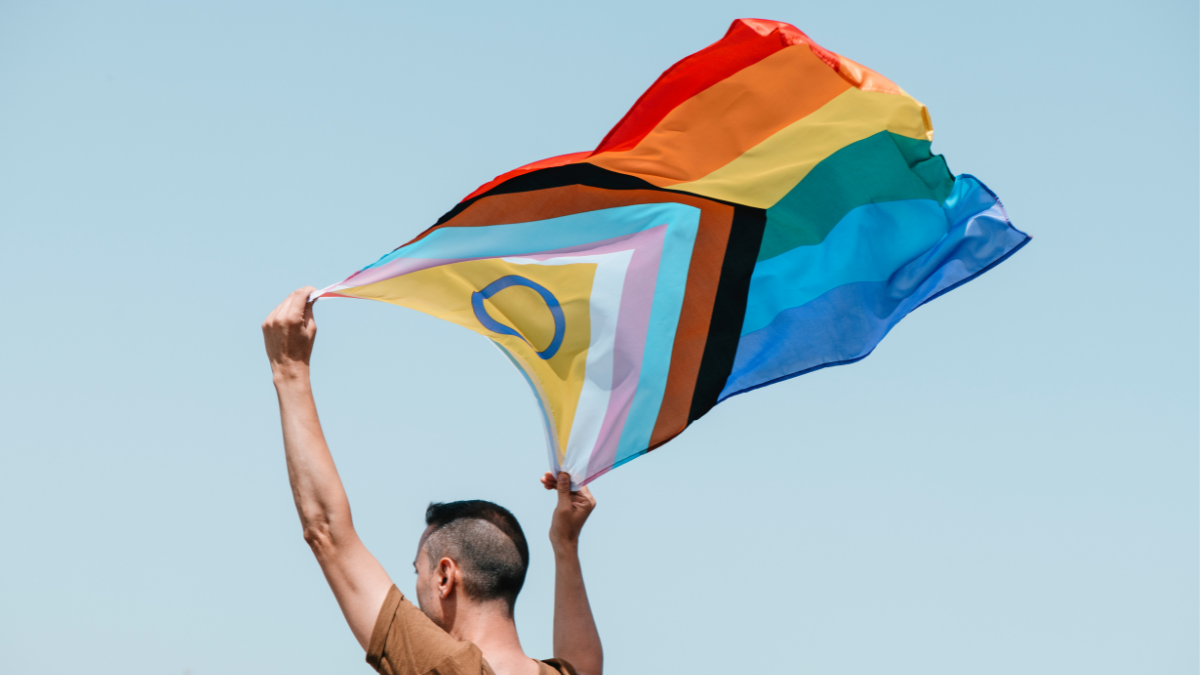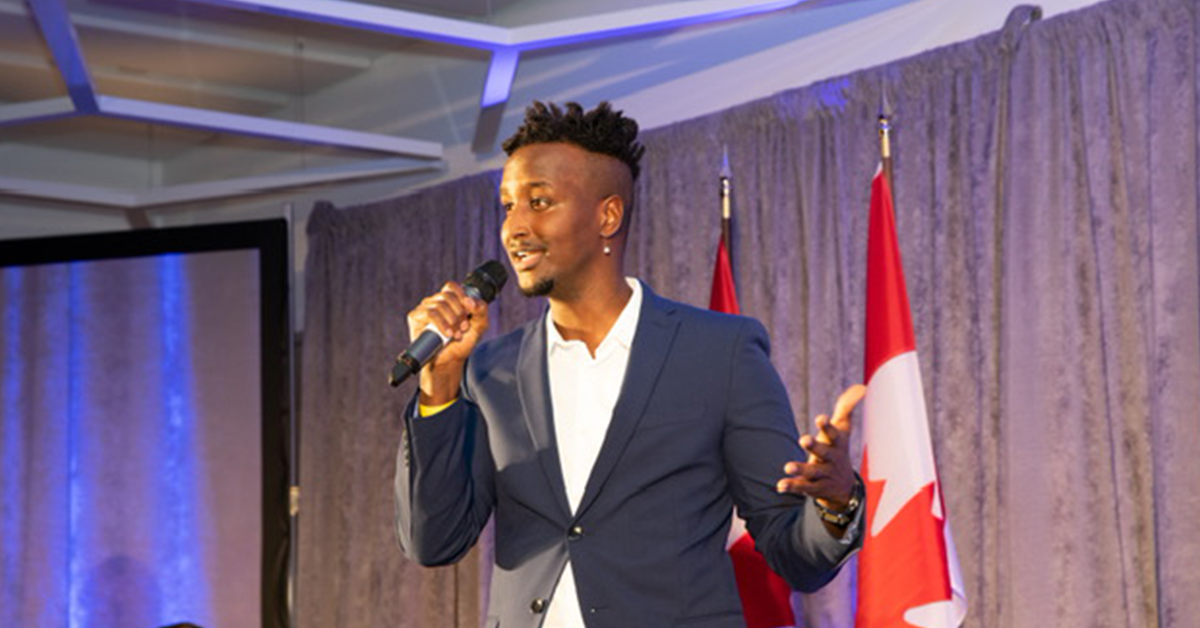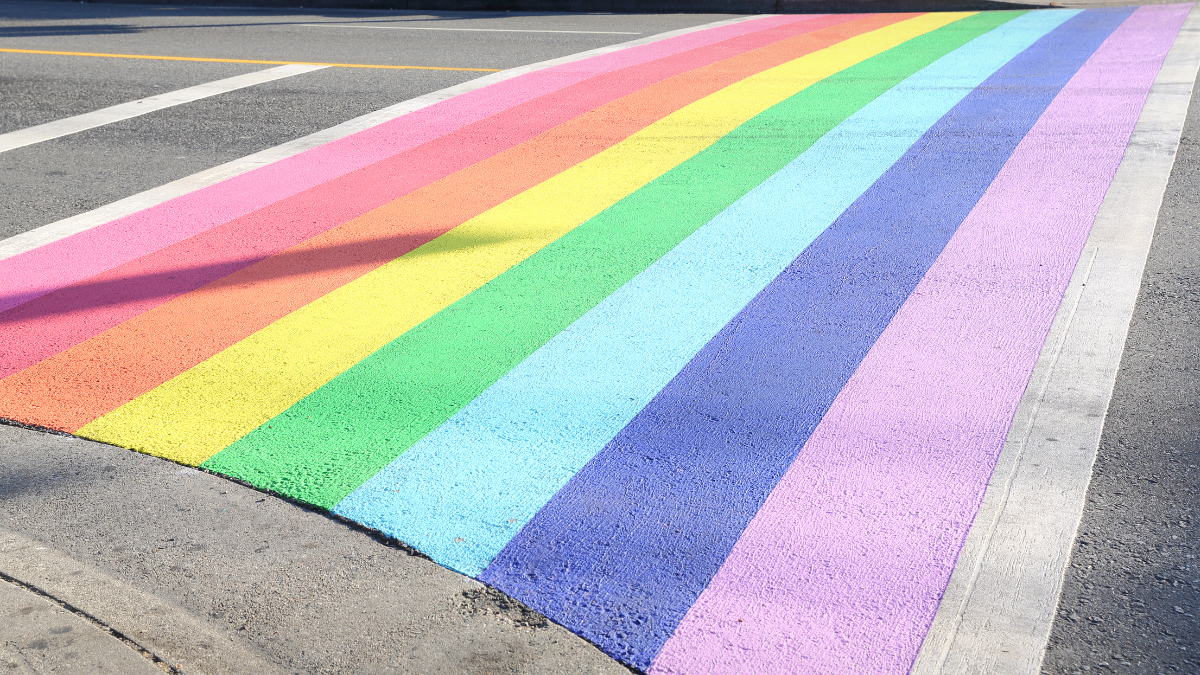LGBTQ+ groups look to other money models after lack of funding in Canada's federal budget
Why It Matters
LGBTQ+ hate and discriminatory policies are on the rise, yet the Liberal government's federal budget allocated very little funding to help queer and gender-diverse organizations - with a potential change in government on the way.

LGBTQ+ serving organizations say their non-profits are at risk after the federal government failed to provide sustainable funding past 2026 in the budget.
After 2026, a new government could be in power, putting the futures of queer and gender-diverse nonprofits at risk.
“We had one clear plea: Futureproof 2SLGBTQI+ progress in Canada,” said Tyler Boyce, executive director of The Enchante Network, a national advocacy group for LGBTQ+ organizations.
In an email to Future of Good, Boyce said Enchante asked the government for $100 million to fund the remainder of the federal government’s 2SLGBTQI+ Action Plan. The additional funds would strengthen organizational resilience as hate crimes against the community continue to rise, he said.
Enchante also asked the government to create a $200 million philanthropic endowment fund (similar to the Equality Fund and Black-led Philanthropic Fund) for the community to ensure long-term stability.
However, both requests were ignored.
“It is particularly worrisome to see such a lack of forward-thinking when it comes to 2SLGBTQI+ human rights in Canada, especially while hate crimes against our communities continue to skyrocket,” Boyce said.

The feds did allocate some funding specific to the LGBTQ+ community. Over the next five years, $12 million will be available in project funding to combat hate. An additional $3 million fund will boost security at Pride events nationwide.
While the sector is glad to see some funding focused on tackling hate, it isn’t nearly enough to ensure organizations will have the capacity to work on hate-related projects, said advocates.
“The capacity for LGBTQ capacity funding that was renewed in the last federal budget ends in 2026. So what happens to all of these LGBTQ organizations who are not able to keep their doors open?” said Debbie Owusu-Akyeeah, executive director of The Canadian Centre for Gender and Sexual Diversity at the time of this interview. Owusu-Akyeeah has since left the organization.
The federal snub happened as individual donations to non-profits and charities dropped across the country despite the increasing need for services, she said.
“The funding for LGBTQ projects addressing hate sends that signal that we hear you, but you’re going to have to figure out the rest,” Owusu-Akyeeah said.
Rise in anti-trans hate isn’t slowing down
Queer and gender-diverse serving organizations are facing the possibility of a federal Conservative government in the future, one with a clear anti-trans agenda and a leader who makes headlines with his anti-trans rhetoric.
This murky political future makes LGBTQ+ serving organizations worry about their ability to exist once federal funding runs out, said Owusu-Akyeeah.
Earlier this year, Conservative leader Pierre Pollievre said he doesn’t believe “biological males” should be allowed in women’s sports, women’s change rooms or bathrooms.
Pollievre has also expressed support for bans on puberty blockers for minors and the anti-trans “parental rights” movement.
Pollievre is no political outlier in his anti-trans rhetoric. Provincial leaders in Alberta, Saskatchewan and New Brunswick are leading the charge with new anti-trans policies, such as requiring parental consent for changing one’s pronouns at school.
Anti-trans hate is a symptom of backlash against progressive legislation that supports the rights of minority groups around the world, said Owusu-Akyeeah. That backlash looks different in a Canadian context.
“Any Conservative government that tries to do a more vocal attack on abortion sees that that doesn’t guarantee the successes that they seek to achieve. But unfortunately, due to the misinformation, the lack of awareness, and just general knowledge of transgender people, they are able to punch down on that group and kind of get away with it. And we’re kind of seeing it happen in real time,” Owusu-Akyeeah said.
The anti-gender backlash across Canada means capacity funding for gender-diverse serving organizations is urgent to ensure their survival and service to their communities, said Boyce.
“From violent attacks on queer and trans students at Canadian universities to bomb threats to LGBTQ+ community organizations, now is not the time for us to repeat the obvious need for action,” he said.

Boyce is referring to a drag storytime event at a public library in Brockville, Ont. where anti-trans protestors were behind a bomb threat in December 2022.
Drag storytime events are a common target nationwide, as are LGBTQ+-friendly books at public schools and libraries. The queer and trans backlash doesn’t end at drag events and books but also includes vandalism of rainbow crosswalks and refusals to raise rainbow pride flags.
Last spring, Amnesty International Canada issued an open letter calling for an end to anti-LGBTQ+ hate.
“The data indicates the growing and perplexing global trends of hate and violence arising from transnational anti-gender rights movements that sit at the intersections of trans-misogyny, anti-black racism, colonialism, xenophobia and heteropatriarchy,” the letter said.
Hate crimes motivated by sexual orientation rose by 64 per cent in 2022, according to Statistics Canada.
Solutions for combatting anti-trans hate
Advocates say education is critical to combatting hate, and $12 million in federal funding can help LGBTQ+ organizations work on community projects to do so.
But what happens when the funding runs out is the pressing question for queer organizations.
An endowment fund could help diversify sources of funding for queer organizations, said Owusu-Akyeeah.
“We’ve been advocating very strongly for a particular endowment fund, one that would see an opportunity for LGBTQ organizations to be sustainably funded beyond the election cycle,” she said.
Several feminist funders have been making the case for philanthropists across multiple sectors to invest not only in women’s rights and gender justice organizations but also in gender justice organizations with an explicit LGBTQ+ mandate, she added.
“Thought leaders can be louder, and it might require more than just LGBTQ feminists to make that argument,” she added.
In March, The Enchante Network launched the Rainbow Resilience Fund, an emergency anti-hate fund that aims to contribute up to $500,000 in micro-grants ranging from $10,000 to $25,000 per LGBTQ+ organization.
The organization gave $535,325 to 22 member organizations in Canada’s most vulnerable communities, said Boyce.
“While this fund would not have been possible without the support of this current Liberal government, it is a short-term solution, not a long-term one. We need to futureproof 2SLGBTQI+ progress in Canada – and that starts with bold new investments,” Boyce said.

